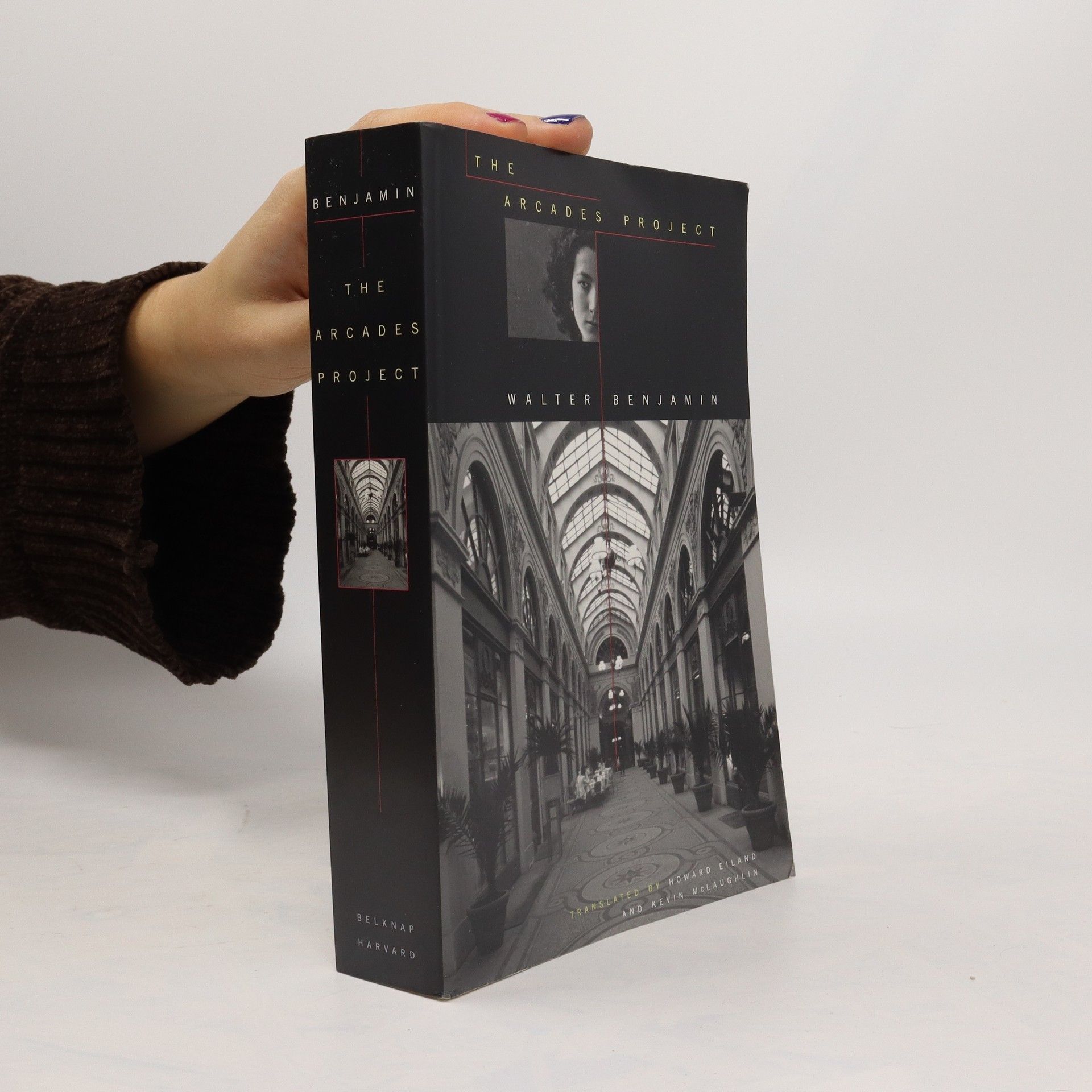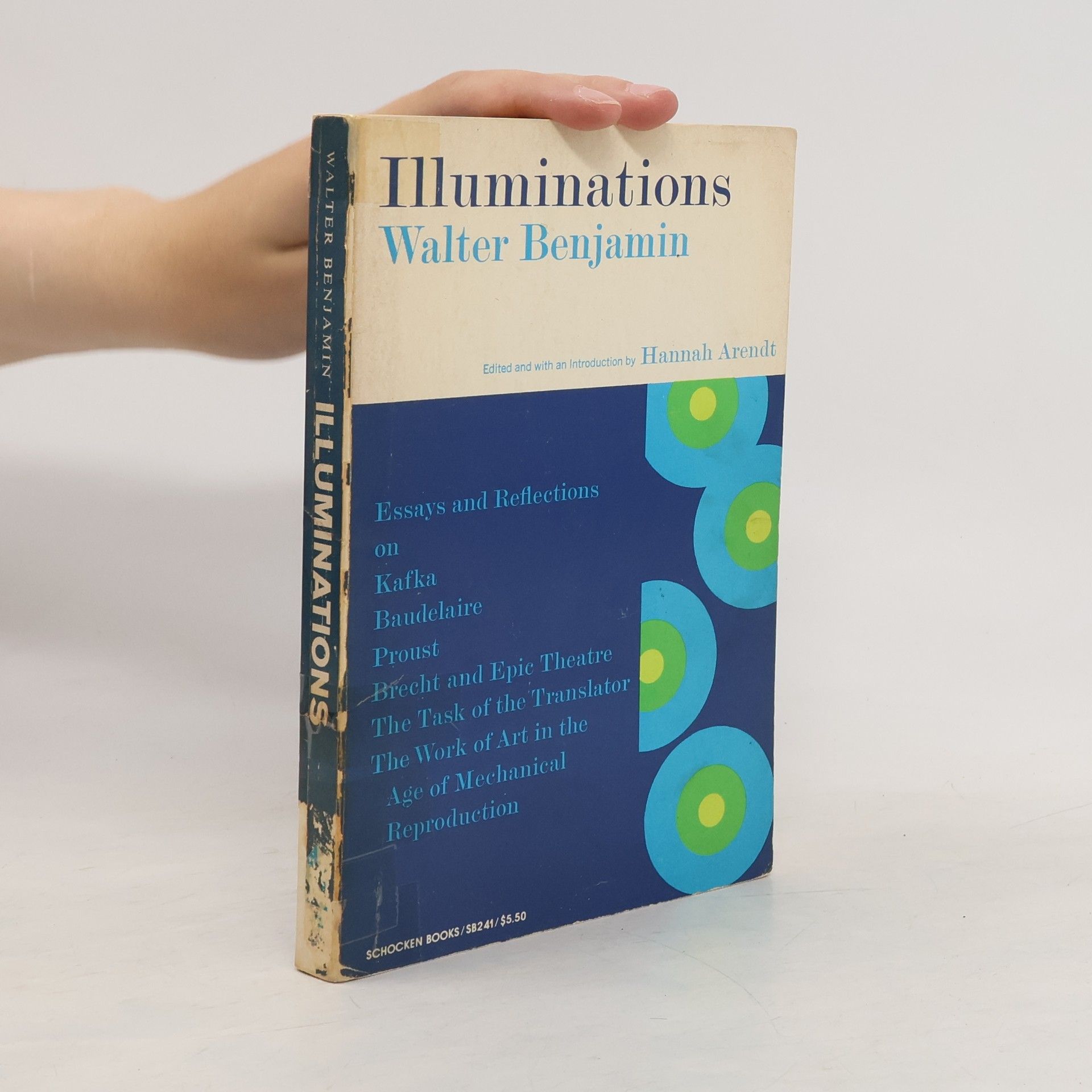In the frenzied final years of the Weimar Republic, amid economic collapse and mourning political catastrophe, Walter Benjamin emerged as the most original practicing literary critic and public intellectual in the German-speaking world. Volume 2 of Selected Writings, covering the years 1927 to 1934, displays the full spectrum of Benjamin's achievements at this pivotal stage in his career.Previously concerned chiefly with literary theory, Benjamin during these Years does pioneering work in new areas, from the stud of popular Culture (a discipline he virtually created) to theories of the media and the visual arts. His writings on the theory of modernity-most of them new to readers of English--develop ideas as important to an understanding of the twentieth century as an contained in his widely anthologiied essay "The Work of Art in the Age of Technological Reproducibility.This volume brings together previously untranslated writings on major figures such as Brecht, Valery and Gide, and on subjects ranging from film, radio, and the novel to memory, kitsch, and the theory of language. We find the manifoldly inquisitive Benjamin musing on the new modes of perception opened tip by techniques of photographic enlargement and cinematic montage, on the life and work of & Goethe at Weimar, on the fascination of old toys and the mysteries of food, and on the allegorical significance of Mickey Mouse.
Walter Benjamin Books
Walter Benjamin was a German Marxist literary critic and philosopher who enriched Western thought with an innovative synthesis of historical materialism, German idealism, and Jewish mysticism. His work is notable for its unique approach to social and cultural criticism and aesthetic theory. Benjamin explored a lost appreciation for myth through the concept of "auratic perception." His essays and literary translations continue to exert a lasting influence on academic and literary studies.







Walter Benjamin: Selected Writings, Volume 3: 1935-1938
- 480 pages
- 17 hours of reading
Radical critic of a European civilisation plunging into darkness, yet commemorator of the humane traditions of the old bourgeoisie - such was Walter Benjamin in the later 1930s. Part of a four-volume set, this work offers 27 pieces.
Walter Benjamin: Selected Writings
- 496 pages
- 18 hours of reading
Exploring the intersection of art and modernity, this collection of essays delves into Walter Benjamin's reflections on figures like Baudelaire and Brecht, alongside his critiques of photography and film. Amidst the looming catastrophe of his time, Benjamin articulates an ethic for artists and critics, emphasizing resilience and the transformative power of art. His theories on mass media and history, particularly in "The Work of Art in the Age of Its Technological Reproducibility" and "On the Concept of History," reveal profound insights into the survival of culture in oppressive environments.
This volume offers extensively annotated translations of essays that are key to Benjamin's rewriting of the story of modernism and modernity as well as a diary from 1938 and penetrating studies of Bertolt Brecht, Franz Kafka, and Eduard Fuchs.
The Arcades Project
- 1088 pages
- 39 hours of reading
"The Arcades Project" is Benjamin's effort to represent and to critique the bourgeois experience of 19th-century history, and, in doing so, to liberate the suppressed "true history" that underlay the ideological mask. 42 halftones.
Even as a young man Benjamin possessed astonishing intellectual range and depth. His topics here include poetry and fiction, drama, philosophy, history, religion, love, violence, morality, mythology, painting and much more.
Comprising more than 65 pieces - journal articles, reviews, extended essays, sketches, aphorisms, and fragments - this volume shows the range of Walter Benjamin's writing. His topics here include poetry, fiction, drama, history, religion, love, violence, morality and mythology.
Walter Benjamin: Selected Writings, 1: 1913-1926
- 528 pages
- 19 hours of reading
This first volume shows that even as a young man Walter Benjamin possessed astonishing intellectual range and depth. His topics here include poetry and fiction, drama, philosophy, history, religion, love, violence, morality, mythology, painting, and much more.
A classic account of late nineteenth-century Paris and a study of Baudelaire's life and work Walter Benjamin, one of the foremost cultural commentators and theorists of this century, is perhaps best known for his analyses of the work of art in the modern age and the philosophy of history. Yet it was through his study of the social and cultural history of the late nineteenth-century Paris, examined particularly in relation to the figure of the great Parisian lyric poet Charles Baudelaire, that Benjamin tested and enriched some of his core concepts and themes. Contained within these pages are, amongst other insights, his notion of the flaneur, his theory of memory and remembrance, his assessment of the utopian Fourier and his reading of the modernist movement.
Studies on contemporary art and culture by one of the most original, critical and analytical minds of this century. Illuminations includes Benjamin's views on Kafka, with whom he felt the closest personal affinity, his studies on Baudelaire and Proust (both of whom he translated), his essays on Leskov and on Brecht's Epic Theater. Also included are his penetrating study on "The Work of Art in the Age of Mechanical Reproduction," an illuminating discussion of translation as a literary mode, and his thesis on the philosophy of history. Hannah Arendt selected the essays for this volume and prefaces them with a substantial, admirably informed introduction that presents Benjamin's personality and intellectual development, as well as his work and his life in dark times. Reflections the companion volume to this book, is also available as a Schocken paperback.Unpacking My Library, 1931The Task of the Translator, 1913The Storyteller, 1936Franz Kafka, 1934Some Reflections on Kafka, 1938What Is Epic Theater?, 1939On Some Motifs in Baudelaire, 1939The Image of Proust, 1929The Work of Art in the Age of Mechanical Reproduction, 1936Theses on the Philosophy of History, written 1940, pub. 1950
